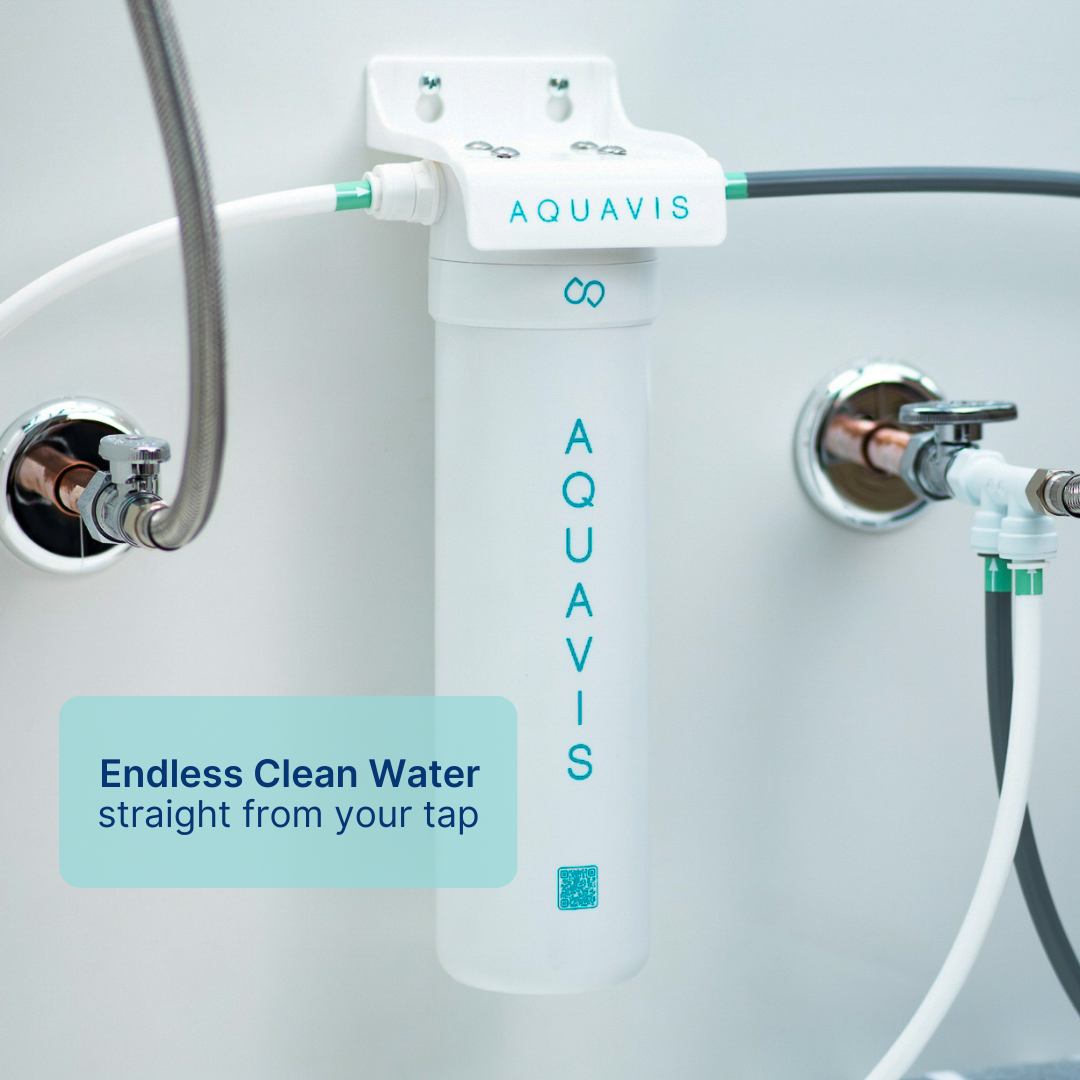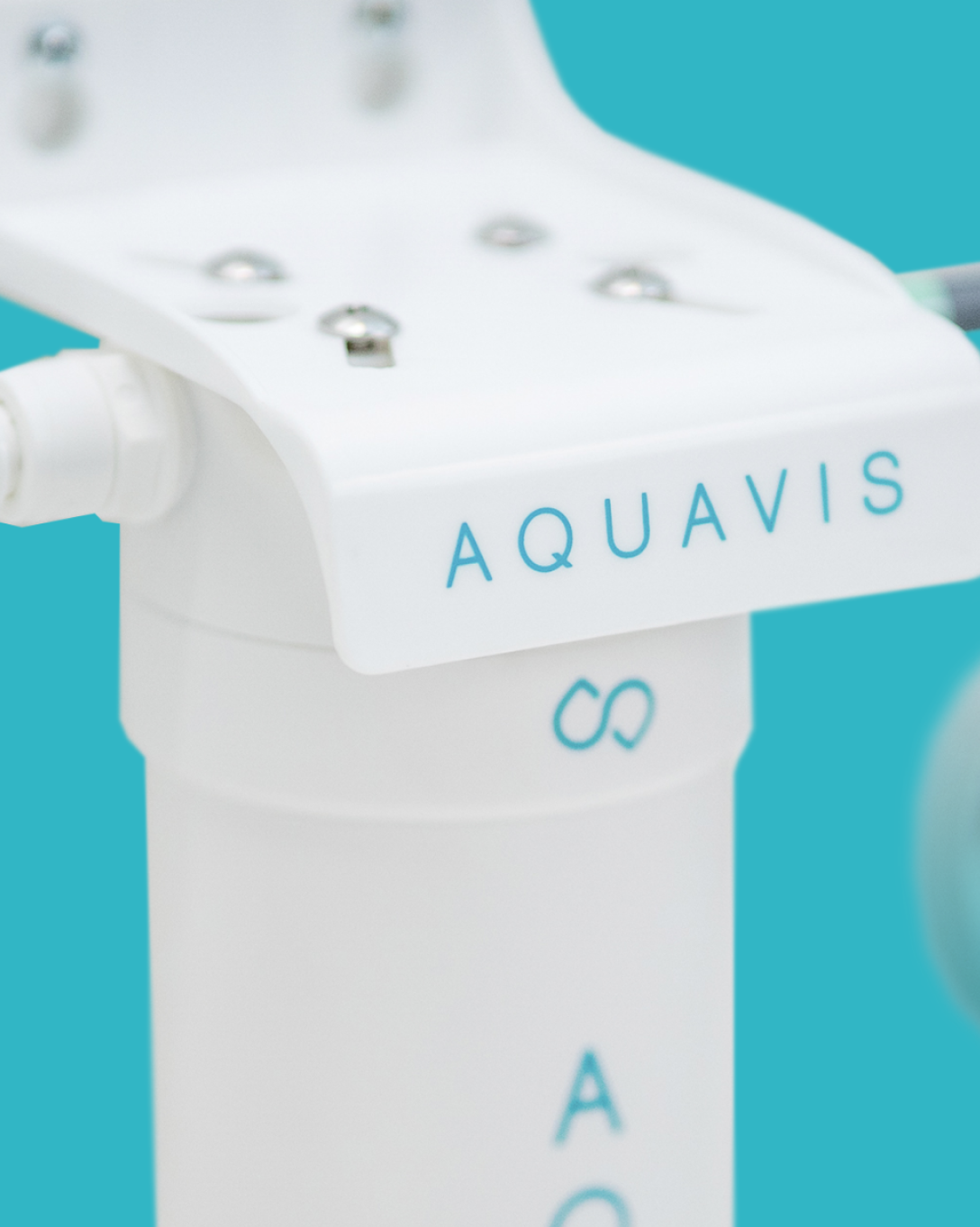Water filters are the unsung heroes of your kitchen, diligently working to make sure your family stays hydrated and healthy. From harmful chemicals and contaminants to unsavory tastes and odors, these contraptions are your purification sidekicks, tackling impurities to give you high-quality water.
In this article, we're breaking down the basics of water filters: how they work and why they're a necessity for your kitchen. From the method behind the filtration process to the details about what they can (and can't) do, we're uncovering the world of water filters.
So, if you've ever wondered about the cleanliness of your tap water, or debated about whether or not you need a water filter in your life, then come on in—the water's fine!
What Are Water Filters?
Water filters play a crucial role in ensuring access to clean and safe drinking water by effectively removing impurities and contaminants. These devices employ various mechanisms such as physical barriers, chemical processes, and absorption to purify water from sources like taps, wells, or rivers.
Common types of water filters include activated carbon filters, UV filters, and reverse osmosis filters. Water filters not only enhance the taste and eliminate the odor of water but also contribute to the overall health and well-being of individuals by reducing the risk of waterborne diseases.
How Do They Work?
Water filters utilize various processes to remove impurities and contaminants, ensuring the delivery of clean and safe drinking water. One common type of water filter is the activated carbon filter, which consists of a porous material like charcoal. In this type of filter, activated carbon attracts and adsorbs organic compounds, chlorine, and other impurities, effectively purifying the water and improving its taste and smell.
Ultraviolet (UV) filters rely on ultraviolet light to disinfect water by disrupting the DNA of microorganisms such as bacteria and viruses. The UV light damages the genetic material of these pathogens, rendering them incapable of reproducing and causing harm. UV filters are especially useful for eliminating microbiological contaminants, providing an additional layer of protection against waterborne diseases.
Water filters employ a combination of physical and chemical processes to remove a wide range of impurities from water sources, improving water quality and giving you crisp, refreshing water.
Why Water Filtration Is Important
Contaminated water sources can lead to the spread of waterborne diseases, causing potential health risks and compromising overall well-being. Water filtration systems act as a crucial line of defense for our health by effectively removing impurities such as bacteria, viruses, chemicals, and pollutants from water. In other words, clean water means healthier bodies and better quality of life.
Water Filters Versus Water Purifiers
Water filters and water purifiers are both designed to improve the quality of drinking water, but they differ in terms of the level of purification and the types of contaminants they target. Water filters typically focus on removing physical impurities from the water supply and improving the taste and odor of water. For example, activated carbon filters adsorb organic compounds and chlorine, while sediment filters capture larger particles. These filters are effective in enhancing the aesthetics of water and eliminating certain contaminants, making it suitable for consumption. However, they may not completely eliminate microscopic pathogens and some dissolved impurities.
Water purifiers go a step further by employing advanced technologies to eliminate a broader range of contaminants, including bacteria, viruses, and dissolved minerals. Methods such as reverse osmosis, UV (ultraviolet) purification, and distillation are common purification methods. Reverse osmosis filters out a wide range of impurities by forcing water through a semipermeable membrane, while UV purifiers use ultraviolet light to disinfect water by destroying the DNA of microorganisms. Water purifiers provide a higher level of assurance when it comes to producing safe and pure drinking water, making them suitable for areas with more significant contamination concerns.
The choice between a water filter and a water purifier depends on the specific water quality concerns in a given area and the desired level of purification. Both help ensure access to clean and safe drinking water, but in places such as hospitals and dental offices, purified water is more crucial. Homes, however, can achieve clean, healthy water with just a simple filter.
A filter like the Aquavis Pulse is a great in-home option because it rids tap water of many contaminants such as PFAS, lead, and chlorine without requiring a complex or expensive purification system.
Drinking Water Filtration Methods
There are a wide variety of water filtration methods that are available to help improve the quality of unfiltered water that comes in from your tap. These take your standard water utility from the municipal water source, and give you clean, refreshing, and healthy water.
These filtration methods can differ depending on the level of filtration, volume of water, and the types of filters that the water may have already passed through. Filtration level will also vary depending on location. For instance, an industrial location would likely use mechanical filters or UV filters, while carbon filters are popular for at-home use.
1. Activated Carbon
Premium activated carbon filters like the Aquavis Pulse operate through a highly effective process of adsorption to purify water. The activated carbon used in these filters is a specially treated, porous carbon block. Activated carbon filters are popular for under sink filters, faucet-mounted filters, and pitcher filters.
As water passes through the filter, the activated carbon attracts and captures impurities and contaminants through a physical and chemical bonding process. “Forever
chemicals” (PFAS), chlorine, volatile organic compounds (VOCs), and other substances present in the water are adsorbed onto the surface of the activated carbon. The porous structure of the carbon provides a large surface area for molecules to adhere to, effectively removing them from the water.
While basic carbon filters only remove chlorine and unpleasant tastes from the water, premium activated carbon filters like those from Aquavis also eliminate various harmful substances (e.g. PFAS, lead, arsenic). These premium filters are often a popular choice for enhancing the quality of drinking water in homes.
2. Reverse Osmosis
Reverse osmosis (RO) is a highly efficient water purification process that removes a wide range of contaminants by utilizing a semi-permeable membrane. In a reverse osmosis system, water is pressurized and forced through this specialized semipermeable membrane, which allows only water molecules to pass through while blocking larger contaminants, such as minerals, salts, and impurities.
This process effectively reduces the concentration of contaminants in the water, producing clean and purified water on the other side of the membrane. Reverse osmosis is particularly effective in removing minerals, heavy metals, bacteria, viruses, and other impurities. Because of its complexity, however, RO is often a slower and more expensive way to filter water.
3. Ultraviolet (UV) Light
Ultraviolet (UV) light filters operate on the principle of using short-wavelength ultraviolet light to disinfect water by disrupting the DNA of microorganisms. Within the UV filter system, water passes through a chamber containing a UV lamp. The UV lamp emits a specific wavelength of light, usually around 254 nanometers, which is highly effective in targeting the genetic material of bacteria, viruses, and other pathogens.
When exposed to UV light, the DNA structure of these microorganisms is altered, preventing them from reproducing and rendering them harmless. While the UV light itself does not directly remove physical impurities or chemicals, it offers a powerful and chemical-free method to neutralize microbiological contaminants.
UV water filters are commonly used in residential, commercial, and industrial settings as an additional layer of protection to ensure that water is free from harmful microorganisms, providing a reliable and efficient way to disinfect water without altering its taste or chemical composition.
4. Ion Exchange
Ion exchange filters operate by replacing unwanted ions in water with more desirable ions, effectively softening the water and removing certain contaminants. These filters typically contain resin beads with charged sites that attract and exchange ions as water passes through them. In the case of water softening, calcium ions and magnesium ions responsible for water hardness are exchanged with sodium or potassium ions present in the resin beads.
While ion exchange filters are effective for certain applications like water softening, they also filter out minerals that are helpful for the body, making them less desirable for drinking water.
5. Distillation
Distillation is a water filtration method that relies on the principles of evaporation and condensation to purify water. In a distillation system, water is heated to its boiling point, converting it into steam. The steam rises, leaving contaminants, such as minerals, heavy metals, and impurities behind. Then, the steam is condensed back into liquid form through cooling, resulting in distilled water. This process effectively separates water from most contaminants, as they do not evaporate with the water.
Distillation is particularly efficient in removing dissolved solids, salts, and microorganisms, producing high-purity water. While distillation is a reliable method for water purification, it may require more funds and energy than other filtration techniques. Additionally, some volatile organic compounds with lower boiling points may not be completely removed through distillation alone.
Types of Drinking Water Filters
Water filters in the home are primarily used to improve the quality of water by removing impurities like organic compounds and chlorine. There are several options of water filters that can be used in your home to help you get delicious water.
1. Filtered Water Pitchers
Filtered water pitchers are convenient and accessible devices designed for simple and cost-effective home water purification. Typically, these pitchers feature an integrated water filter cartridge made of activated carbon or other filtration media. As tap water is poured into the pitcher, it passes through the filter, which captures impurities, chlorine, and contaminants, resulting in improved taste and odor. Filtered water pitchers are easy to use and require minimal maintenance, with filter replacements typically needed after a certain volume of water has been filtered.
These pitchers are popular for their portability, making them suitable for households without a built-in water filtration system. They offer a practical solution for individuals seeking a quick and affordable way to enjoy cleaner and better-tasting water without the need for complex installation or plumbing modifications. The filter portions of these pitchers, however, often don’t hold much water, requiring time and continual refills to fully fill the pitcher with filtered water.
2. Faucet Water Filters
Faucet water filters are compact and efficient devices that attach directly to a kitchen faucet, providing a convenient and immediate solution for improving the quality of tap water. These faucet-mounted filters typically utilize activated carbon or other filtration technologies to remove impurities, sediment, and chlorine from the water as it flows through the faucet. Installation is straightforward, usually involving a simple attachment to the faucet without the need for professional plumbing assistance.
Faucet water filters are known for their ease of use, allowing users to switch between filtered and unfiltered water with a flip of a switch. These filters are effective in enhancing the taste and clarity of tap water while also addressing common contaminants. With regular filter replacement, faucet water filters are a practical and accessible option for households seeking an affordable and straightforward approach to ensuring cleaner and safer drinking water directly from the tap.
While convenient, these filters may not offer as much of an aesthetic as an under-sink filter.
3. Countertop Water Filters
Countertop water filters are versatile and efficient water purification systems designed to sit directly on kitchen countertops, providing an accessible and reliable solution for improving the quality of tap water. These filters often use a combination of filtration media, such as activated carbon, ceramic, and sediment filters, to remove impurities, chlorine, and other contaminants from the water. Countertop filters typically connect to the kitchen faucet or are filled manually, allowing water to pass through the filtration system before reaching the user's glass or container. Installation is straightforward, usually requiring no permanent modifications to plumbing.
Countertop water filters are appreciated for their convenience, as they offer a portable and adaptable solution for households that may not have an integrated water filtration system. With regular maintenance and filter replacements, these systems provide an efficient and cost-effective means of obtaining clean and filtered water for cooking and drinking directly from the kitchen countertop. They can, however, take up counter space and require regular refilling.
4. Under-Sink Water Filters
Under-sink water filters are discreet and highly effective filtration systems designed to fit conveniently beneath kitchen sinks, providing a dedicated and space-efficient solution for water purification. These filters typically connect to the existing plumbing under the sink, allowing water to pass through a series of filtration stages before reaching the tap. Under sink filters commonly employ a combination of filter cartridges, including activated carbon, sediment filters, and sometimes reverse osmosis membranes, to remove impurities, contaminants, and improve taste and odor.
One of the key advantages of under sink water filters is their ability to provide a continuous supply of purified water without taking up valuable counter space. These systems are often more advanced than countertop or faucet filters, making them suitable for households with higher water purification needs.
With easy installation and minimal maintenance requirements, under sink water filters offer a convenient and efficient solution for those seeking a reliable source of clean and filtered water for cooking and drinking at the kitchen sink. These compact filters also save on space by remaining cleverly hidden under the sink to maintain the aesthetic of your home.
5. Whole-House Water Filters
Whole-house water filters are comprehensive filtration systems designed to purify water at the point of entry into a residential or commercial property, providing clean and filtered water throughout the entire home. Installed at the main water supply point, usually where the water line enters the house, these filters are designed to treat large volumes of water, removing various impurities and contaminants. Whole house filters typically incorporate multiple stages of filtration, such as sediment filters, activated carbon filters, and sometimes additional technologies like UV sterilization or water softening.
These systems address not only drinking water but also water used for bathing, cooking, and household chores, ensuring a consistent supply of high-quality water from every tap. Whole house water filters are advantageous for promoting overall health and protecting appliances and plumbing fixtures from the detrimental effects of contaminants.
While they may require professional installation, the long-term benefits of providing clean and filtered water to every part of the home make whole house water filters a comprehensive and efficient solution for households concerned about water quality at every point of use. These systems do often require a large storage space and professional maintenance, making them less convenient than other options.
How Do You Select a Water Filter?
The process of selecting a water filter may seem overwhelming, but the first step is to evaluate your specific needs. Once you know your budget, available space, and desired location for your filter, you can narrow down the options listed above to find the filter that’s right for your family.
At Aquavis, we specialize in under-sink water filters and UV water bottle filters. Our under-sink filters offer easy installation and access to tasty, safe drinking water. The activated carbon technology in these water filters removes harmful contaminants and organic compounds to help improve the taste and odor of your water. Plus, you can even take it a step further with our UV water bottle filter which provides purified water on the go.
See how Aquavis can help you achieve delicious drinking water, today!



